Prof Dr Jens Bormann is a notary in Ratingen, has been President of the German Federal Chamber of Notaries (hereinafter: “Bundesnotarkammer” or “BNotK”) since 2015 and an honorary professor at Leibniz Universität Hannover since 2017. In addition, he has held the office of Vice-President of the International Union of Notaries (UINL) for Europe since 2022 and is Chair of the UINL working group “International Organisations”. In this edition of BNotK International, Prof Dr Bormann answers questions regarding his work as President of BNotK and UINL Vice-President for Europe.
Prof Dr Bormann, you have been committed to the notarial profession since your time as a notary candidate. From 2006 to 2011, you were Director-General of BNotK in Berlin, since 2015 you have been President of BNotK, and in 2022 you were also appointed Vice-President for Europe of the International Union of Notaries (UINL). Where does your commitment stem from and why is this kind of work so important?
My commitment, as you call it – which, incidentally, I share with many of my notary colleagues – certainly stems from the conviction that, in addition to the traditional fulfilment of the public mandate as a notary, the representation of the notarial profession as well as the political work in this regard are essential for its continued existence and its constant further development in the interests of citizens.
Time and again I hear colleagues say: “For me, the notarial profession is the best legal profession there is.” Personally, I can fully agree with this statement. However, the intention behind what we do at BNotK goes beyond that.
Notaries are a core component of an effective preventive administration of justice. As public officials, they make a significant contribution to ensuring both the rule of law and legal certainty. As gatekeepers, they play a key role in ensuring reliable public registers and are strong partners of the state in the area of financial crime. Through the legality checks they perform and their obligation to neutrality as well as confidentiality, they facilitate balanced and targeted agreements, thus contributing to appeasement and reducing the number of contentious proceedings before the courts. The fact that you will find a notary even in the most rural areas of our country and the socially compatible fee system ensure that our citizens have effective access to law and justice.
Thus, we play a crucial role in our legal system. Against this background, I think it is important that we strive to uphold the tried and tested principles of this system and work towards an objective presentation and perception of our public activities and the associated added-values for citizens and companies through our professional work. This part of our work at BNotK therefore relates to the status quo.
At the same time, however, we must of course not remain in the “here and now”, but also dare to look to the future and ask ourselves how we can further develop and improve our public services. In order to achieve this goal, well-grounded professional work is also essential.
You mention the future of the profession. Are there any developments that pose particular challenges now or in the future?
I think that every advancement is accompanied by specific challenges. One major upheaval that is already in full swing and will continue is digitalisation, which has conquered almost all areas of our lives in recent years.
The digitalisation of our profession is therefore a topic that is particularly important to me. Some may think that we as notaries are rather caught up in tradition than proactively breaking new ground. However, that is by no means the case. In recent years, we have invested immensely in technical innovations and legally compliant digital solutions. The BNotK’s digitalisation projects are diverse: from our Electronic Archive of Authentic Acts and notarial online procedures to future projects such as the use of artificial intelligence – we are constantly working not only to adapt to digitalisation, but also to actively advanced it.
At the same time, we deem it imperative to transfer the well-proven principles of the analogue world, which serve to guarantee legal certainty and the rule of law, also into the digital world.
In a speech last year, our Federal Minister of Justice, Dr Marco Buschmann, stated that notaries are not only “guardians of form”, but also “co-guarantors of civil liberty”. I agree with this statement. It takes account of the fact that freedom and form are inextricably linked and that form, as a means of preventing arbitrariness, creates legal certainty and peace under the law. These are crucial values that we are no less dependent on in the digital context than in the analogue world. It is therefore our duty to ensure that form and freedom continue to exist in the context of digitalisation. In my opinion, the aspect of digital sovereignty plays a decisive role in this regard.
As President of BNotK and UINL Vice-President for Europe, you are able to draw a direct comparison. How does the work of the profession at international level differ from national work?
Contrary to what one might think, the differences are not that great. But, of course, there are some: One major difference, for example, is working in an umbrella organisation compared to working as an individual Chamber of Notaries.
At national level, the BNotK represents the interests of German notaries vis-à-vis national or European legislators or international institutions such as the World Bank or the OECD. This work naturally continues in an international context. However, the work of an umbrella organisation like the UINL is primarily about the common interests of the “European notariat” or even the “world notariat”, which ideally speak with one voice. What is particularly exciting about our international work is that we sometimes even have the opportunity to cooperate with international organisations. For example, we have published two guides with the Food and Agriculture Organisation of the United Nations (FAO): one on the responsible administration of tenure and the preventive administration of justice and one on strengthening gender equality in notarial practice.
Another difference is that the decision-making process with 91 member notariats, as it is the case within the UINL, is naturally different and the main topics of interest are not identical either. For example, German legislative procedures, which we closely follow at a national level, may be less relevant in an international context. Also, the organisation of the notarial profession can vary greatly from country to country, as can current issues and challenges.
In the end, however, the similarities always outweigh the differences, such as the endeavour to draw attention to the many added-values of the preventive administration of justice through notaries. For this reason, as UINL Vice-President for Europe, I am going to publish a practical handbook on this subject in order to illustrate the key aspects in a general yet precise manner in several languages. It is my hope that this handbook will be of assistance to notaries in Europe and around the world in their discussions with legislators, government institutions and international organisations.
The international work is very diverse and ranges from discussions with the World Bank to participation in congresses and events in distant countries. What do you particularly enjoy about this job?
Of course, there is a lot to choose from. However, I particularly value the dialogue with my international colleagues. At UINL level, we meet regularly to discuss current topics and projects and to learn more about the experiences on certain aspects in other countries. The international work enables me to think outside the box and come into direct contact with notaries from all over the world. On the one hand, this is personally very enriching. On the other hand, it also helps with my work back at home. Many topics, such as digitalisation, are not specific to Germany, but affect people all over the world. Being able to exchange views on the respective challenges, solutions and experiences is a privilege that I wouldn’t want to miss.
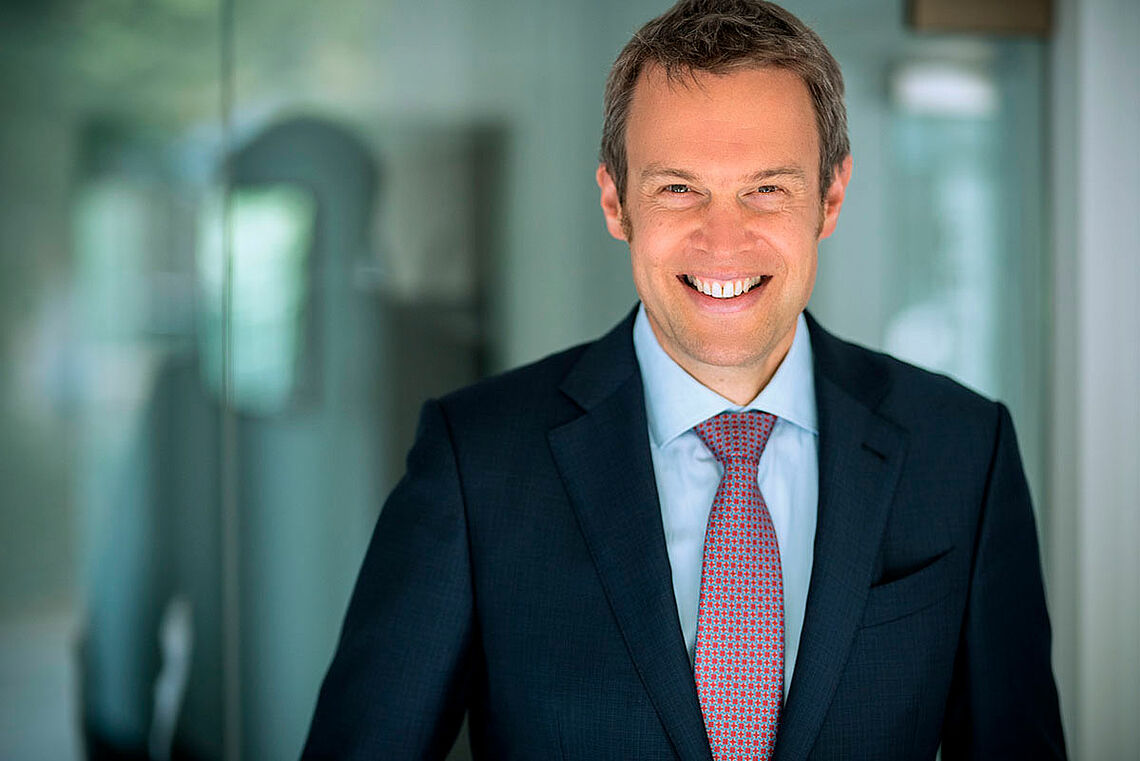
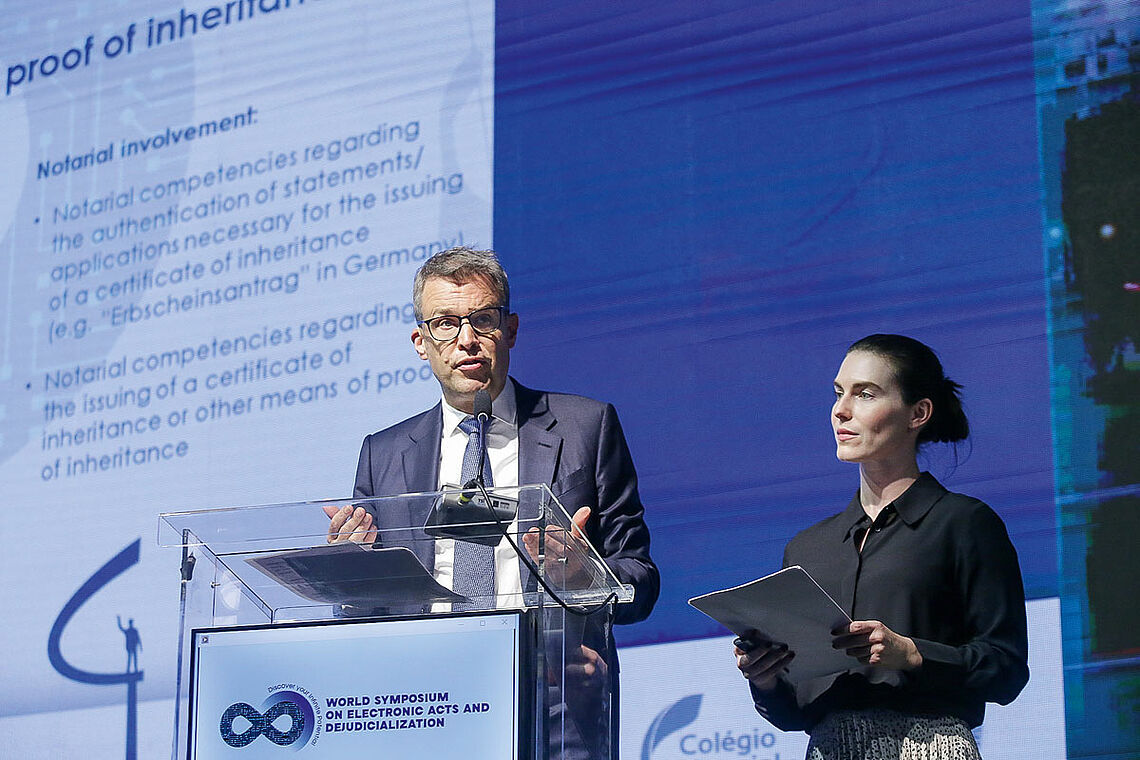
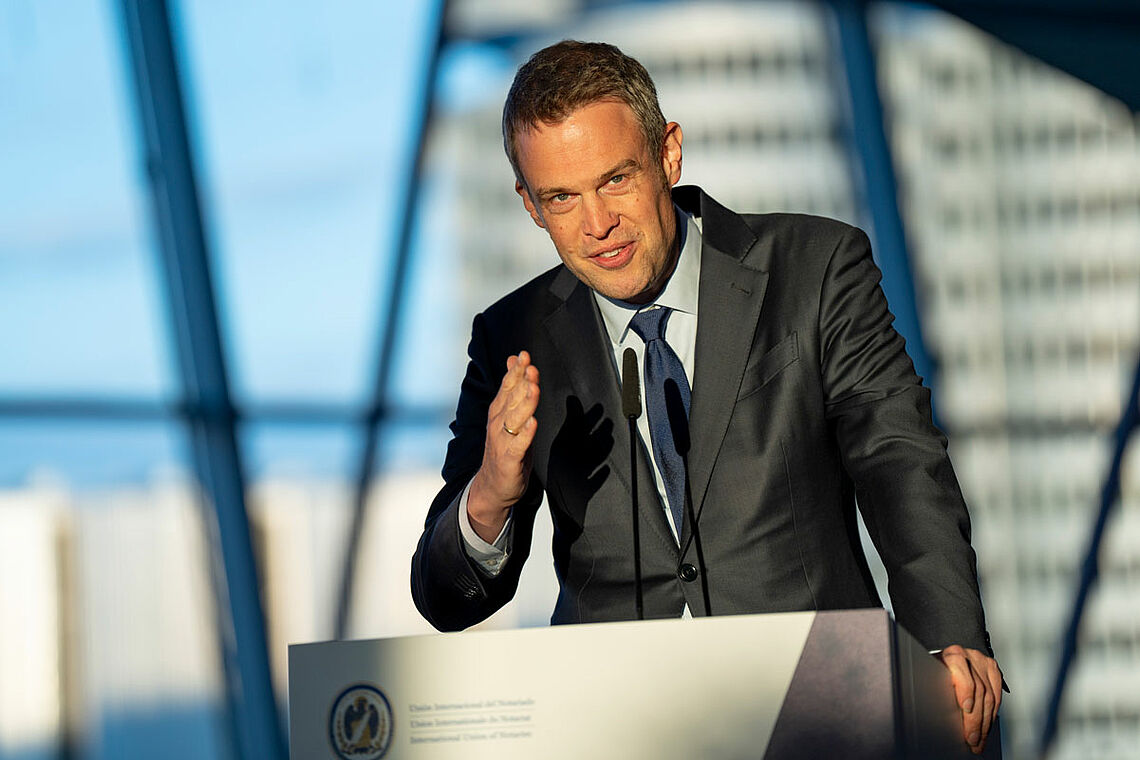
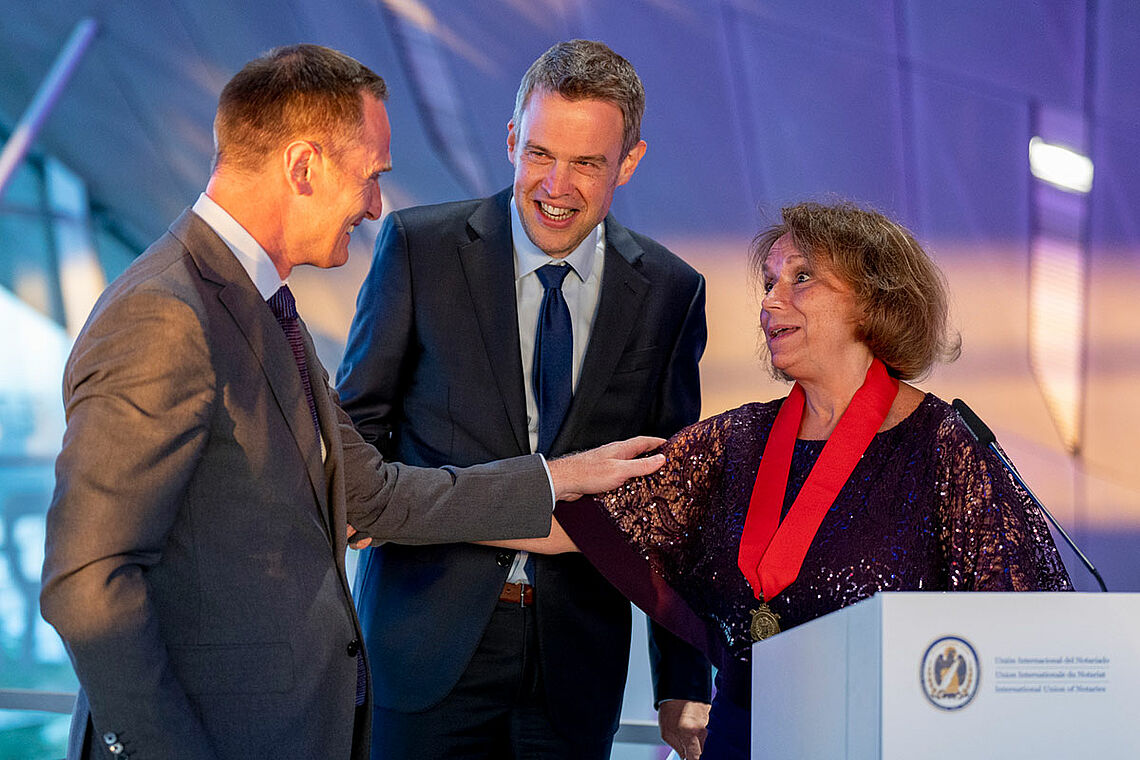

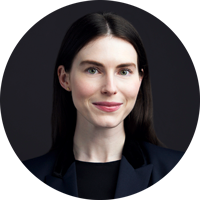
![[Translate to Englisch:] [Translate to Englisch:]](/fileadmin/_processed_/3/e/csm_GettyImages-2192700028_1200x800_4f66ef394b.jpg)
![[Translate to Englisch:] [Translate to Englisch:]](/fileadmin/_processed_/3/5/csm_GettyImages-520453968_1200x800_89aeda977d.jpg)
